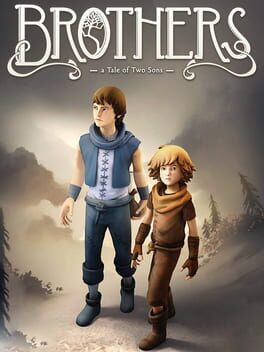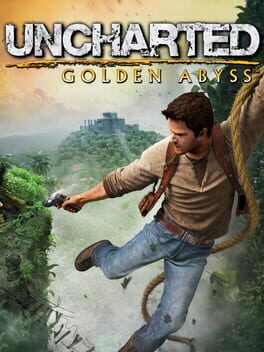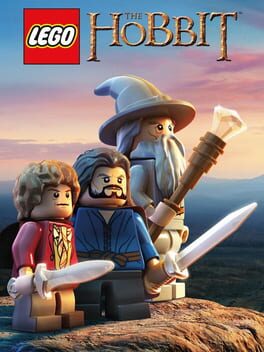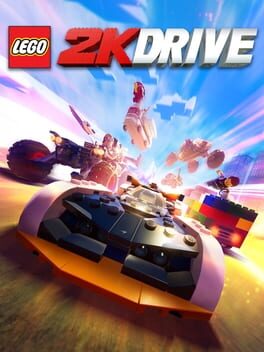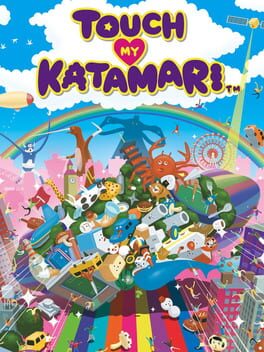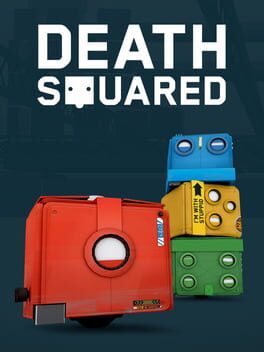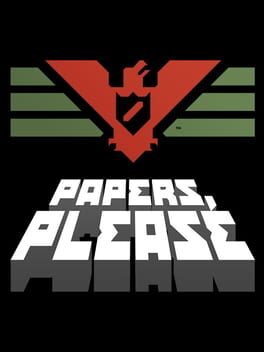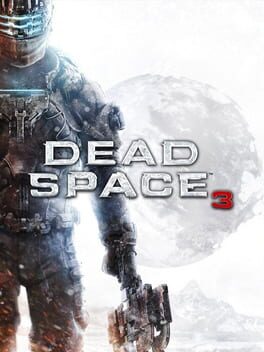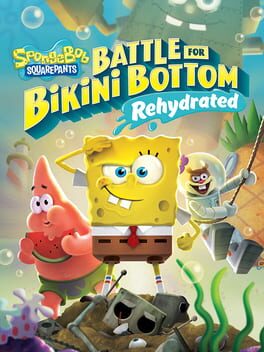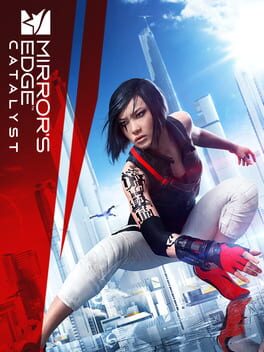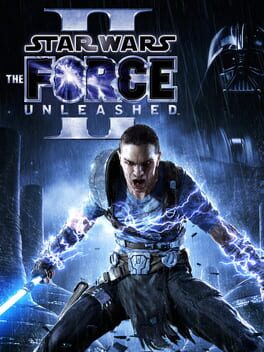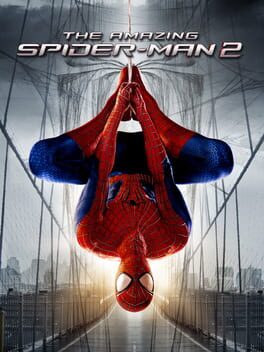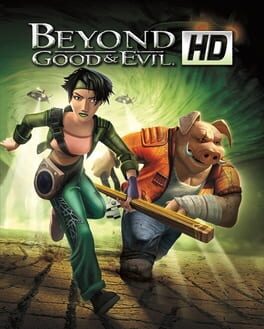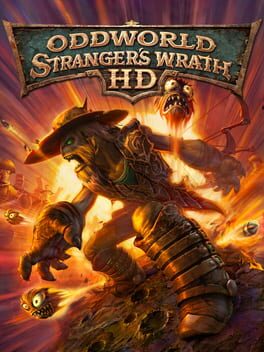TheJimmonator
Pretty good! And while Bend Studio are clearly no Naughty Dog, the writing, performances, visuals and soundtrack are all more than competent enought to make this feel on par with Nate's first outing on the PS3. That's admittedly light praise given Drake's Fortune is easily the weakest entry in an otherwise stellar series; Similar to that title, there are no major breathtaking set pieces to marvel at here but the moment to moment gameplay is fun enough to propel you onwards. A new feature, courtesy of the Vita's touchscreen, in which you can 'paint' the ledges you wish to climb with your finger is very welcome, but quicktime events that have you swiping the screen in a certain direction or rubbing to reveal a drawing grow tiresome fast.
2014
Vita review:
Another LEGO handheld game that I think benefits from being completely different to its non-portable-console alternatives; the levels are super short with many challenges asking you to finish them in under 90 seconds. The presentation is decent and Howard Shore’s typical bangers from Middle-Earth are present, but as per with these handheld ports, the audio is compressed to hell (a necessary evil to get the game under a certain size, I guess).
There seems to be no way to track what quests you’ve completed/handed in, and the addition of crafting and resources adds very little.
This is definitely one of the more kid-friendly LEGO tie-in experiences with limited gameplay that usually descends to mashing square, but you can do far worse thanks to the IP at use here and the innate joys that come with that world.
Another LEGO handheld game that I think benefits from being completely different to its non-portable-console alternatives; the levels are super short with many challenges asking you to finish them in under 90 seconds. The presentation is decent and Howard Shore’s typical bangers from Middle-Earth are present, but as per with these handheld ports, the audio is compressed to hell (a necessary evil to get the game under a certain size, I guess).
There seems to be no way to track what quests you’ve completed/handed in, and the addition of crafting and resources adds very little.
This is definitely one of the more kid-friendly LEGO tie-in experiences with limited gameplay that usually descends to mashing square, but you can do far worse thanks to the IP at use here and the innate joys that come with that world.
2023
Way better than I expected, and just like almost every other LEGO title under the sun, this can (and should) be completed entirely with a partner - everything from races, quests, events and a mass amount of collectibles are so much better with someone by your side to tackle it all. This may be aimed at children overall, but some of the times and requirements needed for the events are super challenging (which was actually a nice surprise in this instance). Two trophies for driving a set amount of kilometres (neither of which I was anywhere near after spending 30 hours collecting and doing everything the game has to offer) are extremely unwelcome
2011
as charming and irreverent as any Katamari title with the added bonus (or detraction depending on who you ask) of including a more modern control scheme. It’s pretty short and the road to 100% is artificially extended by including an item that is so expensive to purchase it would take you almost a year of daily logins to afford, but the gameplay loop is as fun and addictive as ever, given you enjoy rolling up anything and everything in sight to the sound of Japanese pop ear-worms
There’s a stretch in the middle of the game that easily reaches a 9/10 (everyone that’s finished it knows where it is) where I was hopping from main mission to main mission like I haven’t done in a long time, actually eager to see where the plot was taking me, enjoying some major high budget spectacle along the way. The climax isn’t super satisfying and ends up going down the only path that Insomniac has left to explore. I’ll be there for Spider-Man 3, no doubt about it - these titles are all rock solid 8/10s for me. This iteration in particular performs amazingly well, the combat is reactive, the traversal is better than ever and the whole thing generally looks superb (particularly at night/sunset, whilst some daytime moments can look a bit plastic and less flattering on the character models). There’s a lot of really nice music here too by John Paesano and his team, much of the best stuff sadly not included on the official soundtrack release. There’s also generally just too much music, actually, with the experience being filled wall to wall with some occasionally heavy handed musical accompaniment - it’s ok to let the writing and actors breathe for a bit!
Somewhat spoiler territory here: both this game and its predecessor suffer as soon as the story focuses on Martin Li. The issue stems entirely from the treatment of Miles who is often pushed to the side and given missions that feel out of place. In the same way that the writers clearly wanted to tell a Doc Ock story the last time around, this was obviously their Venom story. Much of Miles’ arc doesn’t really fit in with that, so he’s left to deal with the uninteresting Mr. Negative once more. A mission towards the very end of the game really stops the pacing dead in its tracks, and I don’t think it ever quite picks back up.
Somewhat spoiler territory here: both this game and its predecessor suffer as soon as the story focuses on Martin Li. The issue stems entirely from the treatment of Miles who is often pushed to the side and given missions that feel out of place. In the same way that the writers clearly wanted to tell a Doc Ock story the last time around, this was obviously their Venom story. Much of Miles’ arc doesn’t really fit in with that, so he’s left to deal with the uninteresting Mr. Negative once more. A mission towards the very end of the game really stops the pacing dead in its tracks, and I don’t think it ever quite picks back up.
2017
Specifically played with a partner, this is way more fun (and funnier) than you'd expect a puzzle game where you move cubes around to ever be. We only had to look up solutions for about 4 of the 120 total levels (and it's very comforting to see that all 4 of those were the top searched for solutions on YouTube), so the game does a really solid job of making things seem challenging without ever pushing you to feel like you're losing your mind. The fixed perspective of some of the levels can be frustrating when you aren't sure if there's a drop to your certain death or a wall on another plane of verticality, but never often enough to be anything more than a little bit annoying
2013
A genuinely original, compelling and great little game that is repetitive by nature but fascinatingly addictive in how fast the moment to moment gameplay moves and obstacles are thrown at you. It's also refreshingly funny despite the setting and a couple of tracks on the soundtrack are total bangers.
2013
I’m 2 out of 4 playthroughs deep into my Dead Space 3 platinum journey and at this point am certain I won’t find any new critiques between now and the end of playthrough 4.
There’s nothing controversial about the idea that Dead Space 3 is a fall from grace, even in the eyes of Chuck Beaver, a writer and co-producer on the title who recently shared his opinions about the game a decade on. The story is a sloppy mess which halfway through devolves into a bizarre love triangle between Isaac, Ellie and a third character so unmemorable that I don’t remember his name. It doesn’t help that a bunch of important story beats are told through patchy intercom transmissions whilst you’re doing other things. A newly introduced co-op function allows you and a pal to tackle the entire experience together, and certainly adds some levity to an otherwise eventually dull endeavour; the story drags on too long and is full of so many questionable plot decisions and holes that none of it matters by about the half way point. Remove your co-op partner from the equation and the respective in-game character becomes an NPC that teleports from cutscene to cutscene whenever appropriate, never to be seen in any actual gameplay moments.
The atmosphere in the first third of the game whilst you’re exploring abandoned space vessels is still pretty strong, encouraging exploration outside of the predetermined path and rewarding you for doing so. Those rewards often present themselves in the form of weapon crafting parts and upgrades to be used in one the games more interest bullet points: gun customisation.
You can either build weapons from the ground up or work with blueprints that you find throughout the world, and experimentation is fun, although some weapons are clearly more interesting than others after just a single shot of the trigger.
Add in some of the least impressive visuals and artistic direction that the core trilogy has to offer, and it all becomes a bit of a middling experience, saved (…just!) by the innate pleasures of co-op and some spooky creature and world designs.
This is by no means a terrible game, but it is almost a bad Dead Space game, and given the lofty heights of the first two titles, that’s a damn shame.
There’s nothing controversial about the idea that Dead Space 3 is a fall from grace, even in the eyes of Chuck Beaver, a writer and co-producer on the title who recently shared his opinions about the game a decade on. The story is a sloppy mess which halfway through devolves into a bizarre love triangle between Isaac, Ellie and a third character so unmemorable that I don’t remember his name. It doesn’t help that a bunch of important story beats are told through patchy intercom transmissions whilst you’re doing other things. A newly introduced co-op function allows you and a pal to tackle the entire experience together, and certainly adds some levity to an otherwise eventually dull endeavour; the story drags on too long and is full of so many questionable plot decisions and holes that none of it matters by about the half way point. Remove your co-op partner from the equation and the respective in-game character becomes an NPC that teleports from cutscene to cutscene whenever appropriate, never to be seen in any actual gameplay moments.
The atmosphere in the first third of the game whilst you’re exploring abandoned space vessels is still pretty strong, encouraging exploration outside of the predetermined path and rewarding you for doing so. Those rewards often present themselves in the form of weapon crafting parts and upgrades to be used in one the games more interest bullet points: gun customisation.
You can either build weapons from the ground up or work with blueprints that you find throughout the world, and experimentation is fun, although some weapons are clearly more interesting than others after just a single shot of the trigger.
Add in some of the least impressive visuals and artistic direction that the core trilogy has to offer, and it all becomes a bit of a middling experience, saved (…just!) by the innate pleasures of co-op and some spooky creature and world designs.
This is by no means a terrible game, but it is almost a bad Dead Space game, and given the lofty heights of the first two titles, that’s a damn shame.
Maybe I'm biased, I do think the original Mirror's Edge is one of that generations most interesting titles; A genuinely innovative game with deeply enjoyable gameplay whilst also being a total visual feast. The story is ultimately forgettable, but the game works wonders where it matters the most.
All of the above is true about the sequel, prequel, reboot: Mirror's Edge Catalyst. That's not to say a worthwile host of characters following an intriguing plotline wouldn't have made this a better title, it absolutely would, but instead we're stuck with a vanilla lead, Faith, and a bunch of the usual suspects - the quirky hacker, the father figure mentor, the teammate who doesn't really like you but will almost certainly come around by the end. The first couple of hours are actually interesting enough, there's an unknown history and tight bond between Faith and Noah (the previously mentioned father figure mentor) that is almost immedaitely dispatched. Noah is subsequently treated worse and worse by the writers as the game goes on and the final story mission sees Faith displaying silly superhero level acrobatics.
But when you're out in the city of Glass, a place aptly named thanks to all the glass, traversing the rooftops feels incredible. It's fast, kinetic, and a newly added FOV slider will help quell some of the motion sickness. The open world feels like a completely natural choice for this series.
If you're familiar and comfortable with the gameplay in the original game, you'll fit right in here. Some of the movement options are locked behind a skill tree (the roll being the most unforgiveable exclusion), this is definitely a mistake, but you can, and should, unlock the important stuff so early into your experience that it matters very little.
Some of the time trials that you'll find hopping around the city are tough, but 99% of them are between 60 to 90 seconds and all of them super enjoyable. The first trick is figuring out the fastest route, the second is perfecting it. It's such a shame that the leaderboards (about to be closed, anyway, as of December 2023) are full of impossible times to beat. I'm not talking 'get good' impossible, I mean glitched and cheated impossible.
I've seen a lot of criticisms thrown at the combat here which is so massively improved from the first game. Faith won't be picking up guns this time but her moveset is wider (most importantly, a dash function!) and it feels way more intuitive to kick ass this time around; this is about as close to a first person Matrix combat style that you're gonna get. Enemies react a little slowly sometimes which can look a bit goofy, but transitioning from a springboard to a wallrun to a kick in the face of some government grunt is always satisfying.
The game is so artistically distinct, the bright white cityscape punctuated by primary colours as you fly across the concrete jungle, I think it should be celebrated.
Obviously Mirror's Edge isn't for everyone, if the idea of a first person parkour game puts you off then don't even bother. For me, Catalyst felt just right to play with just the right amount of main, side and collectible content.
All of the above is true about the sequel, prequel, reboot: Mirror's Edge Catalyst. That's not to say a worthwile host of characters following an intriguing plotline wouldn't have made this a better title, it absolutely would, but instead we're stuck with a vanilla lead, Faith, and a bunch of the usual suspects - the quirky hacker, the father figure mentor, the teammate who doesn't really like you but will almost certainly come around by the end. The first couple of hours are actually interesting enough, there's an unknown history and tight bond between Faith and Noah (the previously mentioned father figure mentor) that is almost immedaitely dispatched. Noah is subsequently treated worse and worse by the writers as the game goes on and the final story mission sees Faith displaying silly superhero level acrobatics.
But when you're out in the city of Glass, a place aptly named thanks to all the glass, traversing the rooftops feels incredible. It's fast, kinetic, and a newly added FOV slider will help quell some of the motion sickness. The open world feels like a completely natural choice for this series.
If you're familiar and comfortable with the gameplay in the original game, you'll fit right in here. Some of the movement options are locked behind a skill tree (the roll being the most unforgiveable exclusion), this is definitely a mistake, but you can, and should, unlock the important stuff so early into your experience that it matters very little.
Some of the time trials that you'll find hopping around the city are tough, but 99% of them are between 60 to 90 seconds and all of them super enjoyable. The first trick is figuring out the fastest route, the second is perfecting it. It's such a shame that the leaderboards (about to be closed, anyway, as of December 2023) are full of impossible times to beat. I'm not talking 'get good' impossible, I mean glitched and cheated impossible.
I've seen a lot of criticisms thrown at the combat here which is so massively improved from the first game. Faith won't be picking up guns this time but her moveset is wider (most importantly, a dash function!) and it feels way more intuitive to kick ass this time around; this is about as close to a first person Matrix combat style that you're gonna get. Enemies react a little slowly sometimes which can look a bit goofy, but transitioning from a springboard to a wallrun to a kick in the face of some government grunt is always satisfying.
The game is so artistically distinct, the bright white cityscape punctuated by primary colours as you fly across the concrete jungle, I think it should be celebrated.
Obviously Mirror's Edge isn't for everyone, if the idea of a first person parkour game puts you off then don't even bother. For me, Catalyst felt just right to play with just the right amount of main, side and collectible content.
It makes some marked improvements over its predecessor which shouldn’t be ignored; The game handles and looks better, sometimes significantly. Sadly even at 5 hours-ish the campaign doesn’t sustain itself, both the major boss battles that appear at the halfway and end point of the game drag on for too long whilst the story is even less interesting than the first game - Starkiller and co are not at all compelling characters here.
The usual suspects from John Williams’ timeless scores are welcome and even the original composer Mark Griskey gives Gordy Haab a run for his money as the most natural heir to the Star Wars Music Throne. Beneath all this remains a game that is fundamentally unimpressive, Starkiller doesn’t feel particularly intuitive to control and that pesky delay between pressing jump and him actually jumping lingers on to present us with a serviceable jump animation instead of a tight control response.
This series desperately needed to feel like OG God of War but with lightsabers and the force (the 10 uninteresting challenge rooms are all the evidence you need that this was the idea). Instead, The Force Unleashed dies here with 2 deeply average titles under its belt, them being Star Wars entities their only truly worthwhile quality (and with that, your mileage may vary).
The usual suspects from John Williams’ timeless scores are welcome and even the original composer Mark Griskey gives Gordy Haab a run for his money as the most natural heir to the Star Wars Music Throne. Beneath all this remains a game that is fundamentally unimpressive, Starkiller doesn’t feel particularly intuitive to control and that pesky delay between pressing jump and him actually jumping lingers on to present us with a serviceable jump animation instead of a tight control response.
This series desperately needed to feel like OG God of War but with lightsabers and the force (the 10 uninteresting challenge rooms are all the evidence you need that this was the idea). Instead, The Force Unleashed dies here with 2 deeply average titles under its belt, them being Star Wars entities their only truly worthwhile quality (and with that, your mileage may vary).
it improves on very little from its predecessor (swinging through the city now requires that webs actually stick to buildings, that’s it) and adds a bunch of stuff that actively makes it a less enjoyable experience; the story throws a thousand villains at spidey and and the incessant threat of being hunted down as a public menace if you choose to not complete the wildly repetitive side content that appears on the map literally by the minute. the whole thing feels janky as fuck but it’s still a playable and mostly engaging spidey game and sometimes that’s enough
